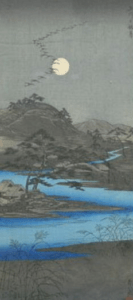Dumb Pain and Smart Pain
Pain-free is not an option.Whether it’s the pain unfolding into the next phase of life, like a flower bud holding tight against the blossom of release. The stone-in-your-shoe annoyance at work that nags you to live a bigger life. The pain of consciousness inhabiting a body that ages and fails. Or the discomfort and uncertainty that arise from stepping away from or being forced out of your comfort zone of habituated routine.
The pain of consciousness inhabiting a body that ages and fails. Or the discomfort and uncertainty that arise from stepping away from or being forced out of your comfort zone of habituated routine.
Life and its myriad of sensations includes pain. There is no escape.
But there is a choice — the choice to inhabit smart pain over dumb pain.
Dumb pain is the story from our childhood, or perhaps even our parents’ childhood, that we believe is true today. The story line we constantly whisper about how we were unseen, uncared for, unlucky or infected with an unrelenting fear.
Dumb pain is what we do again and again, not because it helps, but because it soothes. It’s our skip in the record, the habit-worn groove, the go-to lie that we always fall for.
Dumb pain is the way we sidetrack ourselves into settling for less, rather than inhabit the uncertainty that life could be different. It’s the least developed parts of our selves constantly whispering unhelpful advice, those parts that don’t know how to move forward, but attempt to convince us that if we listen, we won’t go backwards.
And so we stay put. We stay put, even though the world endlessly extends an invitation to unfold into a more integrated and brilliant version of ourselves.
Smart pain is something completely different.
Smart pain knows that shifting the trajectory of our lives requires inhabiting new behaviors and thought streams. It’s the discomfort that comes from stepping out of the soothing slipstream of habit. The disquieting process of failing our way into success. The pain of saying goodbye to solutions that at one time served us well, but now are the stumbling blocks that keep us small and constrained.
Smart pain is enduring the disappointment, fear or concern of those who love us, as we change into someone they don’t recognize. It’s the part of us that knows “what” but is not yet sure of the “how.” It’s the sound of our protective shell cracking and falling away.
The wisdom of many traditions says that pain is unavoidable, but suffering is optional. Dumb pain surely brings suffering. Smart pain opens a path of liberation.
Journey Beyond Sugar: Change and Self-Identity
It’s easy to set impossibly high goals and then decide to give up because we fail to meet those goals.It helps to acknowledge that you’re not as perfect as your mind (or the media)  wants you to imagine you are. So often we fail to measure up, so we give up. You can avoid this by building in exceptions to avoid the collapse of failure.
wants you to imagine you are. So often we fail to measure up, so we give up. You can avoid this by building in exceptions to avoid the collapse of failure.
You set yourself up to succeed.
Even in challenging times, you can still see yourself as a person that does not eat sugary foods, and you can be that person, when you take reality into account.
“Reality” means you know that you’ll eat birthday cake at your grandchild’s party. You’ll eat the muffins that your neighbor brings over, because you’ve been doing that together for a decade. These are situations where it is not a matter of willpower or practice, and you build these exceptions into your goals.
With exceptions in place, you don’t fall for the self-accusation that you have failed, and may as well give up.
Know the situations that will be exceptions. Then keep your focus on the 95 percent of the time that you are doing what you set out to do, instead of being derailed by the 5 percent of times that you aren’t.
More Misconceptions about Meditation
Meditation is not something that takes you “away.” It does not remove you from your troubles, nor does it take your troubles away from you. It is not some amorphous, peaceful nirvana that you can wear as insulation against the unfolding of the world.
 Meditation will not give you the flat tummy that you see in the images on the Internet of people meditating, nor their perfect hair. And you don’t have to shave your head, either.
Meditation will not give you the flat tummy that you see in the images on the Internet of people meditating, nor their perfect hair. And you don’t have to shave your head, either.
Meditation is not about not having thoughts. That would be like asking the sky to not have clouds. Meditation is not about having a still mind — but that doesn’t mean stillness might not arise on its own.
So what IS meditation?
Mediation is the practice of having thoughts, but not letting them have you. The practice of noticing your thoughts, instead of reacting to them. Of noticing your reactions, and not having them move you into action.
Meditation is the opportunity for the 5, 10 or 20 minutes that you’ve set aside for practice to just sit — just sit with what is arising and not do anything about it. It’s the one space in time that you can stop making lists, stop trying to get something to change and stop attempting to accomplish anything. The internal dialogue does not stop, but you stop paying it so much attention.
Meditation is like a pool of water that you constantly throw rocks into. You can’t see the stillness for the waves. But if you stop throwing the rocks, in time the surface will calm, and you will be able to see through to the bottom.
Stillness can arise in meditation, as can clarity. But just as with the open sky, sometimes we see an infinity of blue and sometimes we see storm-tossed clouds. It’s all the same sky.
Remember: Stillness is not the goal of meditation, but just a part of the landscape. Meditation is not about trying to get anywhere, but about being attentive to the moment free of the confines of the past.
Discovering more joy does not, I’m sorry to say, save us from the inevitability of hardship and heartbreak. In fact, we may cry more easily, but we will laugh more easily too.
Perhaps we are just more alive. Yet as we discover more joy, we can face suffering in a way that ennobles rather than embitters.
We have hardship without becoming hard. We have heartbreak without being broken.



